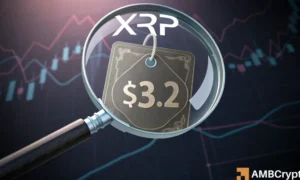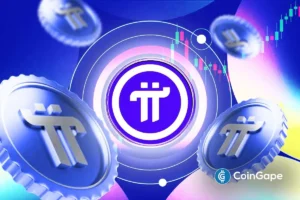The Compensation Dilemma of Ethereum Core Developers: A Call for Change
A recent compensation report from the Protocol Guild has unveiled a concerning trend: most Ethereum core developers are earning significantly less than their counterparts in the industry. The findings highlight the challenges faced by these essential contributors to one of the leading blockchain networks, revealing that their average salary of approximately $157,939 is around 60% lower than the competitive rate of $359,074 offered by similar firms. This discrepancy emphasizes the pressing need for a reevaluation of how talent is compensated in the rapidly evolving world of blockchain technology.
Insights from the Protocol Guild Report
The Protocol Guild’s survey gathered insights from 111 out of 190 members representing 11 organizations. The results paint a stark picture of the financial landscape for Ethereum’s core developers. Notably, many of these contributors receive little to no equity or token incentives, a critical element of compensation that has become standard in the tech industry. In contrast, rival companies often provide around 7% equity grants to attract and retain top talent. This absence of competitive financial incentives puts Ethereum’s core infrastructure at risk, as ongoing contributions are crucial to the network’s sustainability.
Competitive Landscape for Developer Talent
The competitive nature of the tech industry is further underscored by the finding that nearly 40% of respondents received job offers from other companies within the past year. Despite the allure of higher pay, many core contributors have chosen to remain with Ethereum, driven by a commitment to build a decentralized financial system free from traditional gatekeepers. Phil Ngo, an Ethereum developer, described these individuals as "selfless people" who prioritize the project’s vision over personal financial gain. Their dedication to the Ethereum ecosystem exemplifies a community spirit, yet it raises questions about the long-term viability of retaining such talent under current compensation structures.
Long-Term Risks to Ethereum’s Stability
The Protocol Guild report emphasizes the potential long-term risks associated with underpayment for Ethereum developers. The network’s technical roadmap relies heavily on attracting and retaining innovative talent capable of executing critical developments. If compensation does not align with market rates, it could jeopardize the network’s future and its standing as the second-largest blockchain globally. Experts argue that Ethereum’s credible neutrality—an essential characteristic in ensuring trust within the ecosystem—could also be undermined if developers feel undervalued.
Advocacy for Fair Compensation
Echoing the concerns raised in the report, several industry experts have called for a reassessment of how Ethereum developers are compensated. Ngo has taken a strong stance, stating that it is unacceptable to pay them only half the market rate when they are essential for maintaining a network valued at approximately $400 billion. Legal expert Gabriel Shapiro also weighed in, advocating for compensation models that align more closely with the contributions these developers make. He suggested partially compensating contributors with locked ETH to ensure they share in the network’s success, arguing that relying on fluctuating donations is not a sustainable strategy.
Towards a Sustainable Future for Ethereum
The findings of the Protocol Guild report serve as a crucial wake-up call for the Ethereum community and the blockchain industry as a whole. As the demand for blockchain technology continues to grow, retaining the best talent is paramount for driving innovation and ensuring network security. It is essential for the ecosystem to establish fair compensation practices that recognize the invaluable contributions made by developers. By implementing equity and token incentives, Ethereum can enhance its ability to attract and retain top-tier talent, securing its position as a leader in the financial technology landscape.
Conclusion
In summary, the Protocol Guild’s compensation report sheds light on the financial struggles faced by Ethereum core developers, whose dedication to the network’s vision cannot be understated. As the blockchain space evolves, it becomes increasingly vital to prioritize competitive compensation that reflects the hard work and innovation of these key contributors. Ensuring that developers are fairly compensated will not only benefit their well-being but also fortify Ethereum’s future, safeguarding its essential role in reshaping the global financial landscape. By addressing these compensation disparities, the Ethereum community can pave the way for a more sustainable and equitable future in the world of blockchain technology.

















